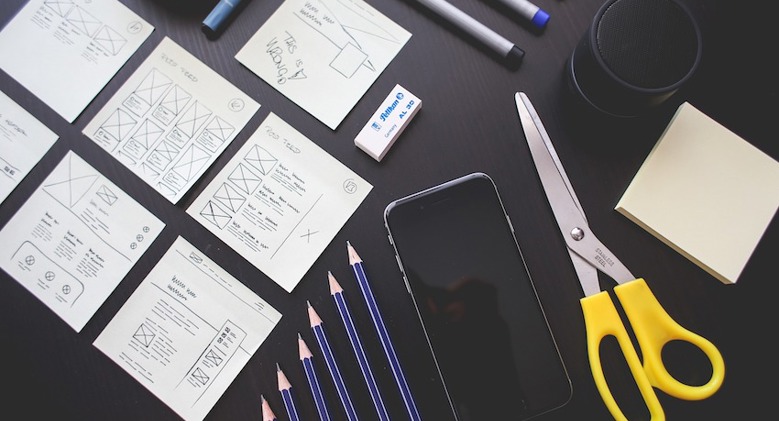
Balancing Work and Play: Lifestyle Tips for Hard Workers
SHARE

Business owners and executives and everyone in between, often work long hours and face high levels of stress, which can take a toll on their physical and mental health. A healthy lifestyle is crucial for maintaining energy, focus, and productivity in the face of these challenges. Neglecting self-care can lead to burnout, chronic illness, and other health problems that can ultimately impact business performance.
Moreover, research shows that a healthy lifestyle is linked to better decision-making, problem-solving, and creativity - all of which are key skills for business success. Engaging in regular exercise, eating a balanced diet, getting enough sleep, and practising stress-reducing techniques can help maintain cognitive function and mental clarity.
Additionally, promoting a healthy lifestyle within an organisation can lead to better employee morale and retention. By modelling healthy habits and prioritising the well-being of oneself and employees, business owners and executives can create a culture of wellness that fosters success and fulfilment. Overall, a healthy lifestyle is not just important for personal well-being but also for business success and growth.
Tip #1: Understand Your Priorities
A crucial component of balancing work and play is managing priorities. Identifying your personal and professional goals and working towards achieving these aspirations with a balanced routine is important when considering your work-life balance. It then follows that listing your priorities in consequential order in order to perform the tasks needed to complete them should be an important focus. A list of priorities should be allotted enough time to ensure that performing tasks required by each priority is achievable.
This is easier said than done, as we're all human. Understanding what your priorities actually are, is not always easy to know. One can say their family is their #1 priority, but if you look at how they spend their time, you'll find they only spend an hour or 2 with their family per day, while spending 10 hours at the office. If something is actually your priority, make it your priority on the clock.
Professional goals should also be considered, both short and long-term. If you don't have a vision for your future career, you are likely to find yourself in a place you did not intend to be. Set goals, and strive to reach them, but be ready to consider changing your strategy or goal when a new, possibly better circumstance arises.
Tip #2: Learn To Say “No”
After a schedule is complete, it’s fundamentally important to be aware of when to say “no” to additional work or commitments which can cause distraction. Focus is key to making sure your goals are achieved and being distracted by requests for additional personal or professional attention is unhelpful. If you have arranged a schedule for your routine and other distractions manifest, saying “no” to these distractions is an important component of healthy work-life balance. Saying “no” to distractions focuses your attention on the things that need to be done to achieve your priorities.
Setting boundaries for your time and energy is fundamentally important and ensures that you can maintain a high workload in balance with a fulfilling personal life. By allotting enough time for personal and professional tasks and maintaining a distance from extraneous activities in these categories you empower yourself to achieve what you want to sooner. Boundary-setting is also important because it doesn’t overburden you with responsibilities that could make others over-reliant on you.
However, it’s important to know how to say “No” without compromising your relationships. Research suggests that instead of a blanket refusal, consider employing subtle nuances in your dialogue, such as, “That sounds important, but I’m quite busy right now. Could you come back to me with that request later?” Or “I’d like to spend time with you on that occasion, however, at the moment I have other commitments. Could we please reschedule?” Maintaining respect for colleagues, coworkers, friends and family while holding firm to your boundaries is crucial to sustaining a healthy work-life balance.
Tip #3: Create a Productive Work Environment
A number-one factor that produces a healthy work environment is ensuring the area where you work is clean and tidy. Ensure you have the tools you need to perform your professional responsibilities close by too and that you have snacks and water nearby to stay energised and hydrated. Your desk should be spacious enough to facilitate the aforementioned items and your chair should be raised to a height that ensures that your eyes are at screen level. This prevents you from straining your back or neck.
Eliminating distractions will help sustain your focus when you are working on professional tasks. Clean your desk, remove any items that clutter the space unnecessarily and stay away from things that could divide your attention, for example, social media and TV. A messy environment is not conducive to productivity and can be extremely counterproductive when trying to stay organised.
Furthermore, make sure you don’t overwork yourself into a state of burnout by taking regular breaks and removing yourself from the area where you work. Desktime suggests that the most productive people take a 17-minute break every 52 minutes. Experiment with different break durations, such as every 60 minutes, every 75 minutes or every 90 minutes until you find a balance that works for you.
Tip #4: Practice Self Care
A part of caring for yourself is prioritising your physical health on top of your mental health. Part of the ‘life’ component of your work-life balance should include exercising, meditating and filled with relaxing hobbies that allow you to get into a flow state.
Flow state is a state of mind that allows for an "escape". In this state of mind, there isn't much "thinking" going on in your mind, but more using your instinct. There are various ways to get into this state of mind, some of which include doing a physical activity such as exercising, swimming, playing sports, bouldering or anything that allows you to be "present".
The effects of exercise on mental health are well-known: it has been shown that people who exercise frequently have better mental health and emotional well-being. Looking after your nutritional needs can help with maintaining good physical health and can be a much-needed source of comfort if you are facing stress and worry in your life. Relaxing and enjoying the things you love is also fundamentally important to sustaining a healthy work-life balance. Take time for a hobby or craft. Learn new skills you can use to achieve your other goals. All of this together forms a complete picture of a positive balance of work and play.
Tip #5: Manage Stress and Burnout
Part of dealing with the pressures life throws at you is learning how to manage stress and burnout. If you have had a particularly taxing week and are feeling overwhelmed and fretful then managing these feelings effectively is important to ensure you get back on track emotionally and can continue to work towards achieving your goals in an effective manner. To manage stress and burnout you should think about positive distractions which can bring joy into your life. Exercise, diet and relaxation are fundamental components of stress management. Exercise and diet should be a part of your daily routine, yet it is also important to focus on the hobbies and activities that bring you glee.
Engaging in activities that you enjoy releases dopamine which is important for maintaining happiness. When you are putting together your schedule of priorities, ensure that you include time for pursuing leisure activities as well as professional and relationship-oriented activities. Be it sport, craft, music, meditation or reading, make sure that you allow enough time to sustain an interest in your hobbies so that you may avoid stress and burnout to the greatest extent possible.
Managing a work-life balance for hard workers is extraordinarily important to good health and a productive work cycle. Energy and focus are fundamental components of a fast-paced, high-pressure work environment and maintaining these can be achieved through prioritisation, saying “no”, deploying a positive work environment, practising self-care and effectively managing stress and burnout. It’s important to maintain a work-life balance to ensure that you can achieve your goals in both professional and personal areas.



